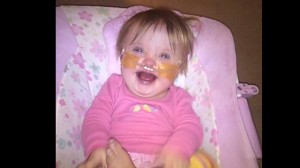by Mona McGee from E.D.Bellis:
Washington, DC is polarized due to the divided government and amidst all of the political grandstanding is a measure that could make a positive impact on many families. Even though there is unlikely to be much legislating until after the November election, this piece of legislation has bi-partisan support and could make its way into the lame-duck session.
The reason this piece of legislation would be helpful is because of the large financial strains on many people who have families with disabled members and this is compounded over-time. The indirect costs can be un-sustainable, and this will allow for more cost-effective budgeting should it be executed as visualized.
Update on IMPENDING PASSAGE OF ABLE ACTOn September 19, Senate Finance Committee Chairman Ron Wyden (D-OR), Ranking Member Orrin Hatch (R-UT), Senator Bob Casey (D-PA), and Senator Richard Burr (R-NC) released a joint statement updating the public on the Achieving a Better Life Experience (S.313 and H.R.647) ABLE Act status.
They indicated that the Senate has generated momentum and positive progress on passage of the bill. The four Senators announced that as a result of bi-partisan collaboration, a policy agreement has been reached that will be the foundation for passing this legislation and obtaining Presidential signature in the lame duck Congressional session, which begins November 12, 2014.
Although no plan has been developed yet to pay for the $2.1 billion cost over 10 years, legislators are optimistic that agreement can be reached. The ABLE Act legislation, to allow people with disabilities to open tax-advantaged savings accounts, has been in development for eight years. This passage could provide some relief for the many families who struggle financially to save for and or finance the care for their loved ones.
BENEFIT One: TAX FREE ACCOUNTS TO SUPPORT DISABILITY RELATED EXPENSESThe ABLE Act would allow people with disabilities and their families to save money in new tax-free “ABLE” accounts for any of the following disability-related expenses:
• Education, from pre-K to college
• Housing, be it for rent or for purchase as long as it’s a primary residence
• Transportation, including moving expenses
• Employment support, like job training
• Health, including insurance premiums and assistive technology like wheelchairs
• Miscellaneous items like financial management and legal fees
The IRS would treat ABLE accounts like existing 529 college savings plans (also known as qualified tuition programs): after-tax contributions would not be tax deductible but earnings would accumulate tax free and qualified withdrawals would also be spared.

















